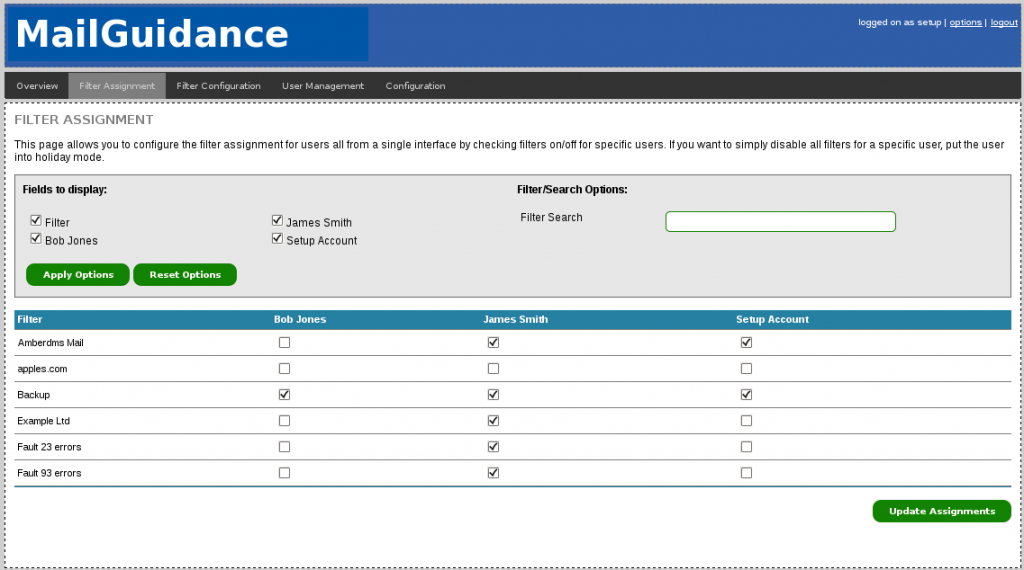Procmail is a rather old, but still very useful Unix/Linux application commonly used for writing mail filter rules on Linux servers. I typically use it for user-level filtering, such as defining mailbox filters for all my emails.
It’s also useful for handling shared email addresses, such as support mailboxes receiving a range of emails. Procmail allows these emails to be re-directed to multiple people, different folders or almost any other action desirable.
To make it easier to manage Procmail rule sets in this scenario, I built a tool called “MailGuidance”. It’s an open source PHP/MySQL application which allows a user to create Procmail filters in a web environment and having it then generate the appropriate configuration in the background on the server.

Define whom in your organisation should be getting emails for each matching filter.
MailGuidance is intended for small organisations or an individual seeking a web-based way of managing their procmail rules, it’s intentionally simple and does limit the power of procmail somewhat in exchange for making an easy to use experience for users.
- Easy web based interface where filters can be enabled/disabled per user.
- User “holiday mode” where all emails to that user get redirected to another until they return, so that nothing gets forgotten.
- Optional email archiving into different folders.
- Configurable behavior for archiving and unmatched mail.
- Works perfectly with IPv6. :-)

Configurable behaviors.

Going away? Send all that albino monkey porn you’ve subscribed to through to your colleague instead!
The best use case for MailGuidance so far has been for handling server log and error emails, by filtering and then redirecting them to the appropriate people/teams to avoid spamming system administrators with irrelevant messages.
I spent some time this weekend tweaking it a bit more and have now packaged some releases and opened up the repository publicly – you can download stable version 1.0.0 or read more about it on my project page here. RPMs are available for users of RHEL/clones.



